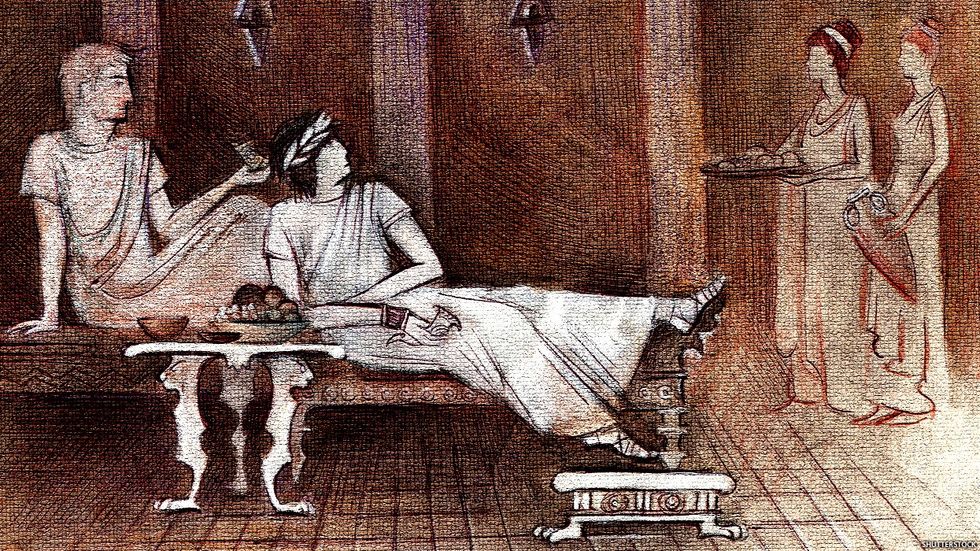Researchers believe a recently recategorized wooden phallic object found in 1992 may be a more than 2000-year-old sex tool and not a darning tool used to mend fabric as initially thought.
The 6.3-inch long object was carved from young ash roundwood and appeared more worn at the far ends than in the center, leading scientists to conclude that the ends got the most use since the smoothing in those areas was most likely caused by oils on the skin, according to CNN.
It was found near Hadrian’s Wall, which once marked the Roman Empire’s northwest frontier in northern England, near the Roman Fort of Vindolanda.
Related: Why Hadrian’s Wall is a Roman Penis Wonderland
The network reports that it was initially miscategorized because the tool was found alongside dozens of shoes, dress accessories, and other small tools and craft waste products.
Collins says that news of people using tools for pleasure in those times isn’t new.
“We know from Roman art and Roman literature that they used dildos and existed. But we haven’t found any examples archaeologically yet,” he said.
Researchers believe the object may have been used as a pestle for its spiritual powers.
Whatever the case, it is possible the object wasn’t always used only for pleasure if it is a sexual tool. Instead, it may have been a tool used to gain the obedience of enslaved people through aggressive and unwanted sexual contact.
“So, the other thing we have to be conscious of is that it would be easy to cast such an object as silly and frivolous and just about sexual gratification, but it could be a tool for perpetuating power imbalance and subjugation,” said Rob Collins, the study’s coauthor and senior lecturer in archaeology at Newcastle University, CNN reports.
The reason tools that may be categorized under sex toys hadn’t previously been discovered is that, most likely, they were made of softer, more mailable organic material, given the nature of their use.
According to the study, because those dildos were made of organic matter that could decay, archaeologists rarely discover them.















































































